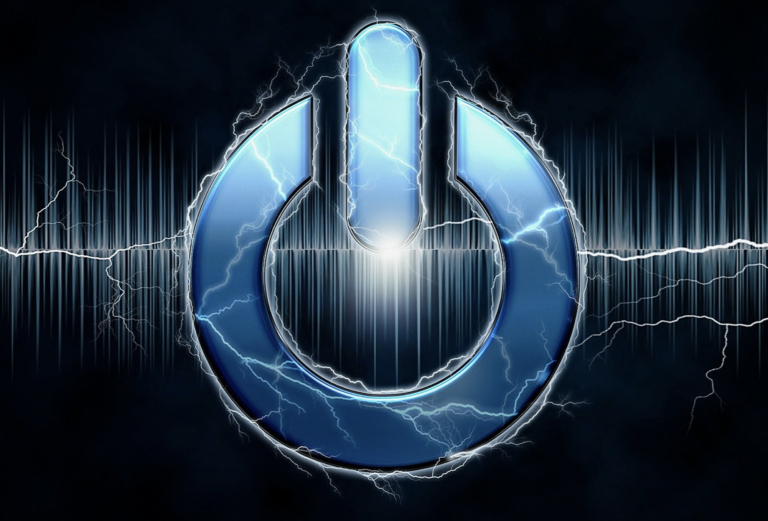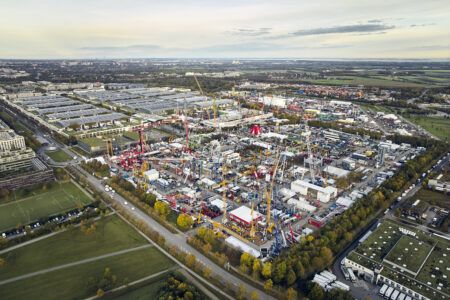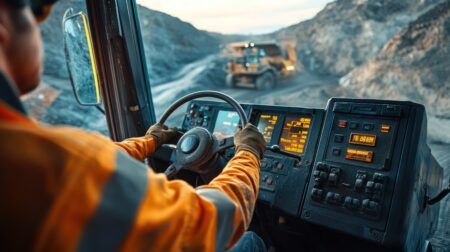Construction equipment manufacturers are embracing electric power. Almost every major construction equipment manufacturer has electric vehicles (EVs) in their current production catalogue.
Some of this is driven by corporate decisions to decrease the negative impact when it comes to climate change and pollution, and some of it is driven to help their customers be more productive and profitable.
John Somers, vice president construction equipment and utility sector for the AEM, considers four key differences between owning new EVs, and more traditional diesel machines.
1 – Charging schedule
The first major difference is the recharging schedule of these vehicles, which can limit how much work they perform and impact your schedule.
Casper Company, a concrete and demolition contractor based out of Spring Valley, California, owns six EVs—a fleet of Sherpa stand-behind skid steer loaders and Brokk radio remote control demolition machines—and for three months they demo’d the Volvo L25 Electric compact wheel loader and the Volvo ECR25 Electric compact excavator.
“We got five to six hours of use out of the machines,” says Casper Company equipment demolition superintendent, Darrell Merritt. “And, every night we transferred them back to our yard for charging.”
The L25 has an indicative runtime of up to eight hours (depending on application) and an off-board charging time of about two hours. The ECR25 has an indicative runtime of up to four hours (depending on application) and can reach 80 percent of a full charge in 50 minutes (both using the 400 VAC 32A charging system).
“Toward the end of the three-month trial, we hooked up a tow-behind battery, and then got eight hours of work from them,” says Merritt.
The on-board charging time for the L25 is about 12 hours and the on-board charging time for the ECR25 is about five hours (both with the 230 VAC 16A recharging system).
2 – Decreased maintenance
The second major difference when owning EVs is the decreased maintenance.
“We experienced no maintenance issues during the trial,” says Merritt.
An electric engine has less components than a diesel engine, which means there is less to go wrong and less that needs servicing. There are no oil changes, no filter changes and no diesel exhaust fluid (DEF).
Also, operators won’t accidentally put diesel in the DEF tank or DEF in the diesel tank since there are no tanks.
3 – Clear energy x 2
Electric energy is clean in two ways; it’s better for the environment (depending on the energy source) and it is always free from contamination.
With EVs, you don’t need to place orders for and then store large quantities of fuel for your fleet. And, you don’t have to worry about that fuel getting contaminated or ensuring it stays at the correct temperature.
Electric energy is always free from contamination, and it will never be wasted due to spoilage.
4 – Fewer workers
Since a lot of EVs can work indoors and other spaces that diesel machines can’t work, these machines are often replacing manual labour.
“Our jobs demand EVs,” says Merritt. “We work underground and inside buildings that are occupied, so diesel machines aren’t an option. In these cases, we often work by hand, but there is a huge gain in productivity by using an EV. An application that takes one hour by hand, we can complete in just 20 minutes with an electric machine.”
The Volvo L25 Electric and ECR25 Electric were demo’d by not just Casper Company, but three other companies in various applications in different climates across the US; the machines are expected to be available next year.
“Casper wants to be a leader in the future of EVs and when the Volvo electric models become available, we look forward to being the first to get one,” says Merritt.





